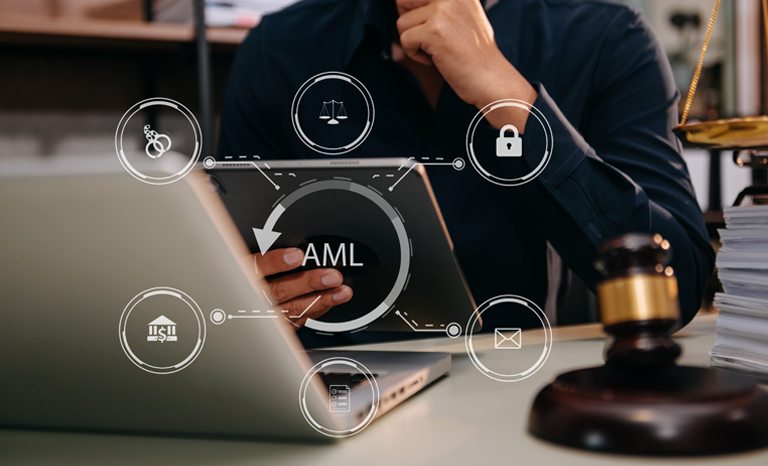MLR firms need to pay a levy on economic crime and anti-money laundering by May 2023. The first FIN074 return is due at the same time. In this update, we’ll explain everything you need to know about the Economic Crime Levy (ECL), including how it will affect MLR firms, how it will be collected, how firms need to provide the data to ensure correct calculation of the levy, and what firms should do to prepare for it.
What is the Economic Crime Levy?
The UK government has committed to tackling money laundering and delivering reforms under the 2019 Economic Crime Plan. To fund this, firms supervised under the Money Laundering, Terrorist Financing and Transfer of Funds (Information on the Payer) Regulations 2017 (MLR) are required to pay an economic crime levy (ECL), which was implemented as of 1 April 2022.
The ECL is an annual charge based on total UK revenue and applies to firms whose revenue exceeds £10.2 million. Firms will be charged according to four size bands. The amounts for 2023/24 are:
- Small (under £10.2m) = Exempt
- Medium (£10.2m-£36m) = £10,000
- Large (£36m-£1bn) = £36,000
- Very Large (over £1bn) = £250,000
To determine the applicable band, eligible revenue includes all revenue reasonably attributable to the firm’s UK activities. UK-based firms should exclude revenues generated by foreign permanent establishments, while foreign entities should only report revenues from their UK-based permanent establishments.
Only 4,000 out of 90,000 entities subject to the MLR will be subject to the ECL. However, firms need to assess which band they fall within based on their UK revenue. They should also engage across compliance, finance and treasury functions to ensure appropriate provisions are made for the payment of the levy.
How Will the Economic Crime Levy Be Collected?
The ECL will be collected by one of three collection authorities: the Financial Conduct Authority (FCA), the Gambling Commission (GC), or HM Revenue and Customs (HMRC). Firms will only need to pay one collection authority, even if they are supervised by more than one under MLR. If a firm is supervised by the FCA, it must follow the FCA’s ECL process. They must do this even if HMRC also supervises some of their business activities.
To keep the collection costs down, invoicing will be conducted as part of the normal invoicing process and the levy will be an additional line on the invoice.
Firms will provide information and pay the ECL to the collection authority that supervises them under MLR. The FCA has set out its position on the ECL, and data will be collected through a new regulatory return (FIN074), accessed through the existing RegData reporting system. Firms are expected to report all their regulated and non-regulated UK gross revenue in GBP. The FIN074 return must be submitted by 2 May 2023.
What steps do firms need to take?
Firms need to prepare for the reporting of their FIN074 and ensure that they meet the procedural arrangements for collecting the levy. Failure to submit the return on time may result in a £250 administrative fee. If a firm is liable to pay the ECL, they will receive prior written notice and must pay the indicated sum within 30 days.
To report their FIN074, firms need to make internal preparations. The following tasks are recommended:
- Determine which revenue bracket they fall into based on their UK revenue calculation.
- Collaborate with compliance, finance, and treasury functions to ensure that the appropriate provisions are made for the levy payment.
- Prepare to meet the procedural requirements for collecting the levy.
How Neopay can help
The introduction of the Economic Crime Levy has significant implications for MLR-regulated firms in the UK and it is a continuation of the wider public policy to tackle money laundering and terrorist financing. Compliance with this levy will require review and coordination of internal processes to ensure correct data is used to establish the correct revenue band, responsibilities for reporting and payment of the levy.
Neopay, with its extensive experience in providing regulatory compliance solutions, can help firms navigate these new requirements and ensure they are fully set up for reporting under the FIN074 and your fees payment arrangements are in place. Contact us to find out how we can assist your business in meeting your regulatory obligations while minimising the impact on your business operations.



